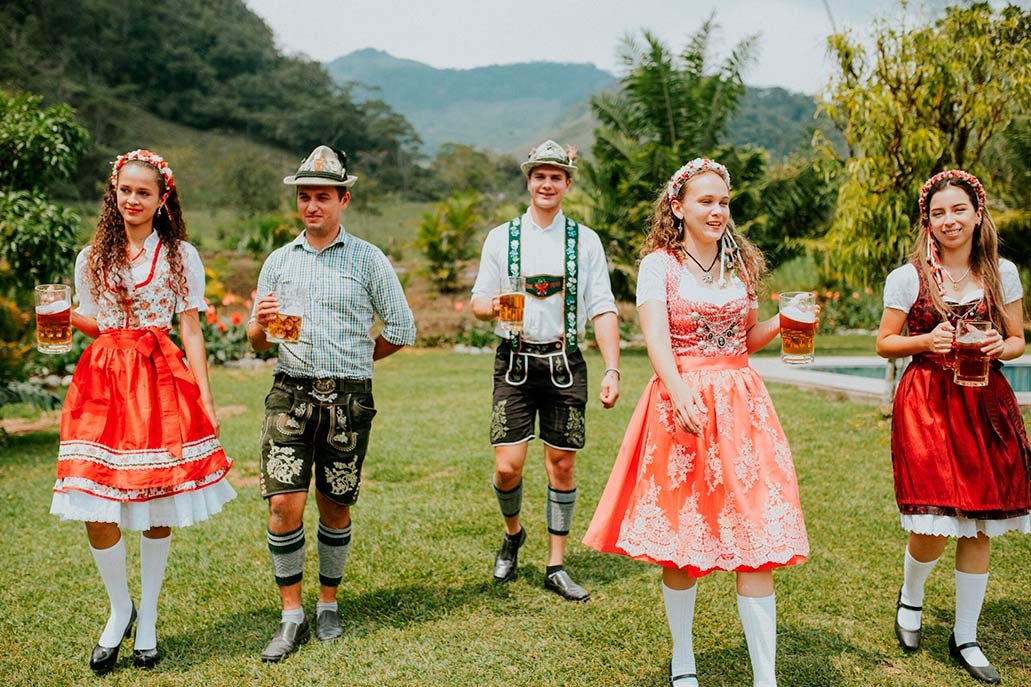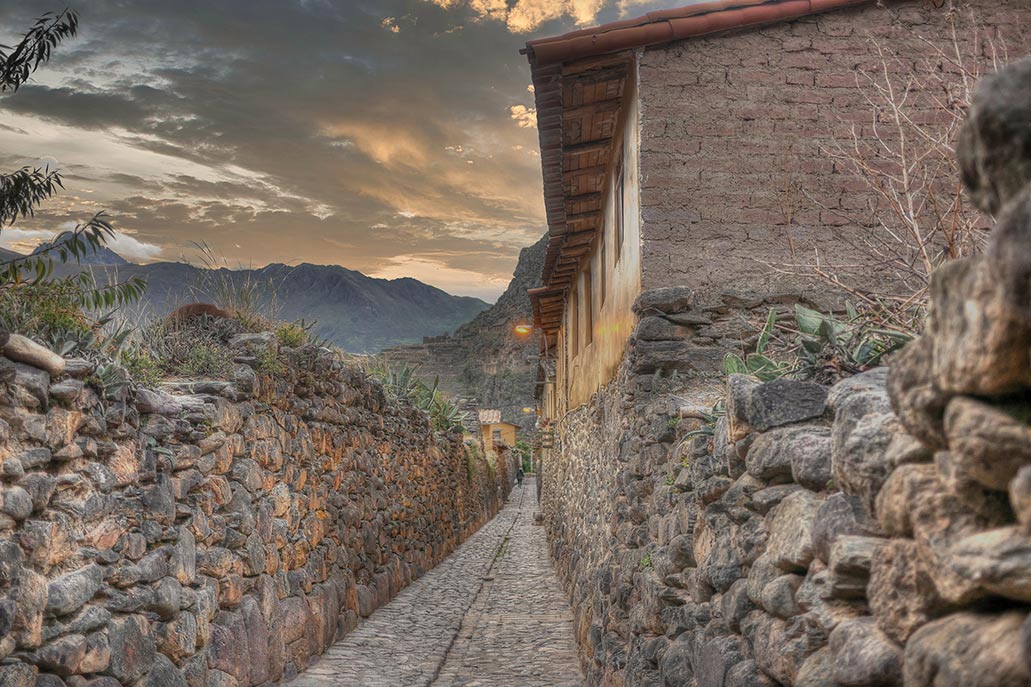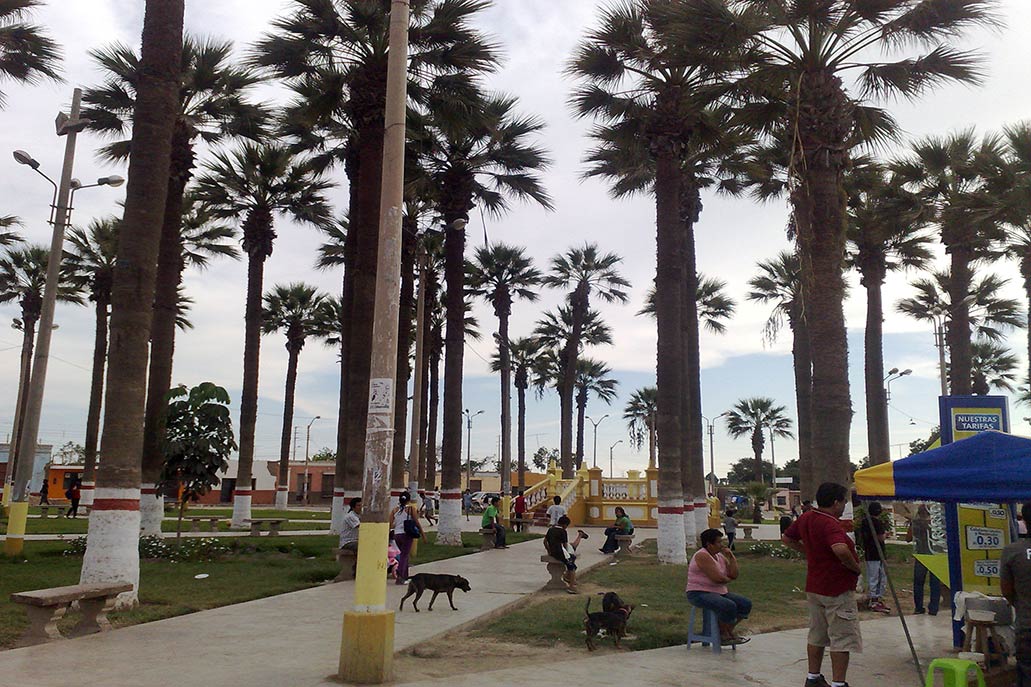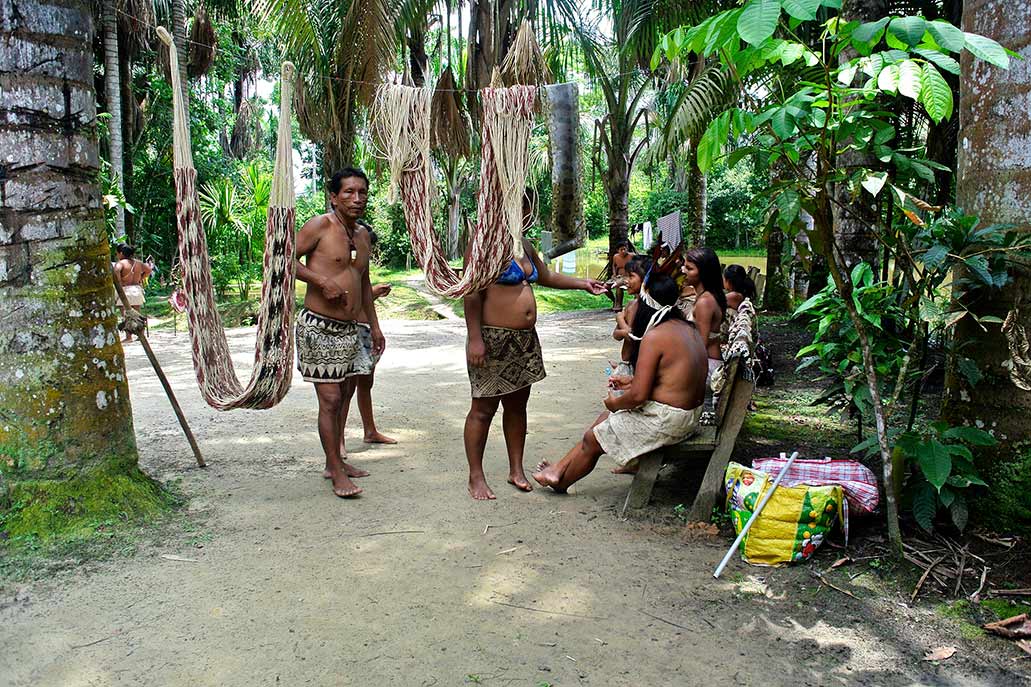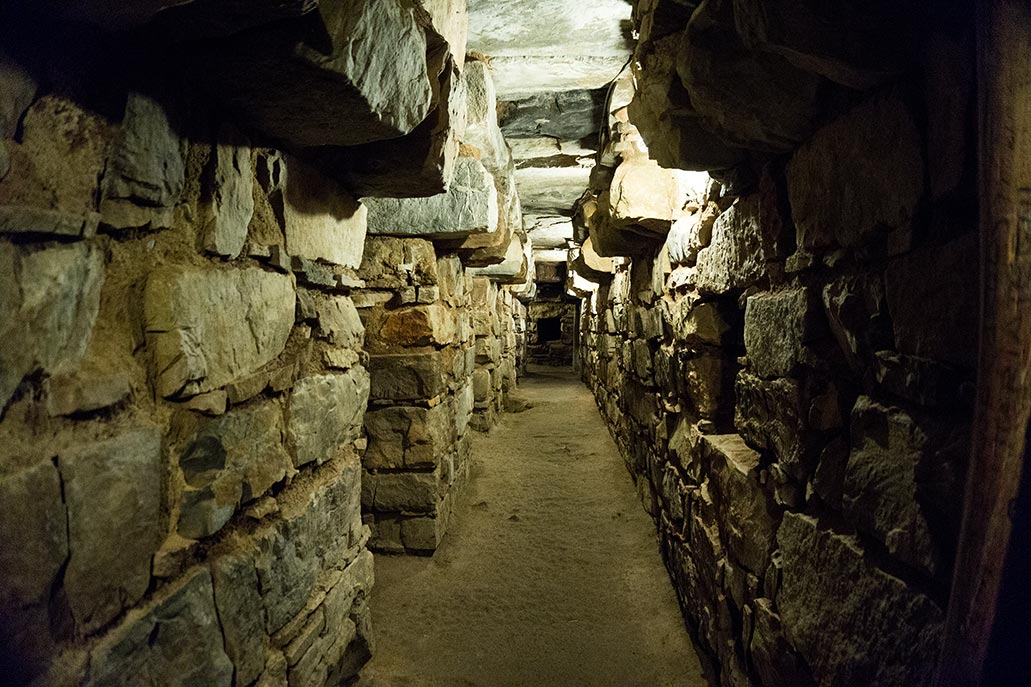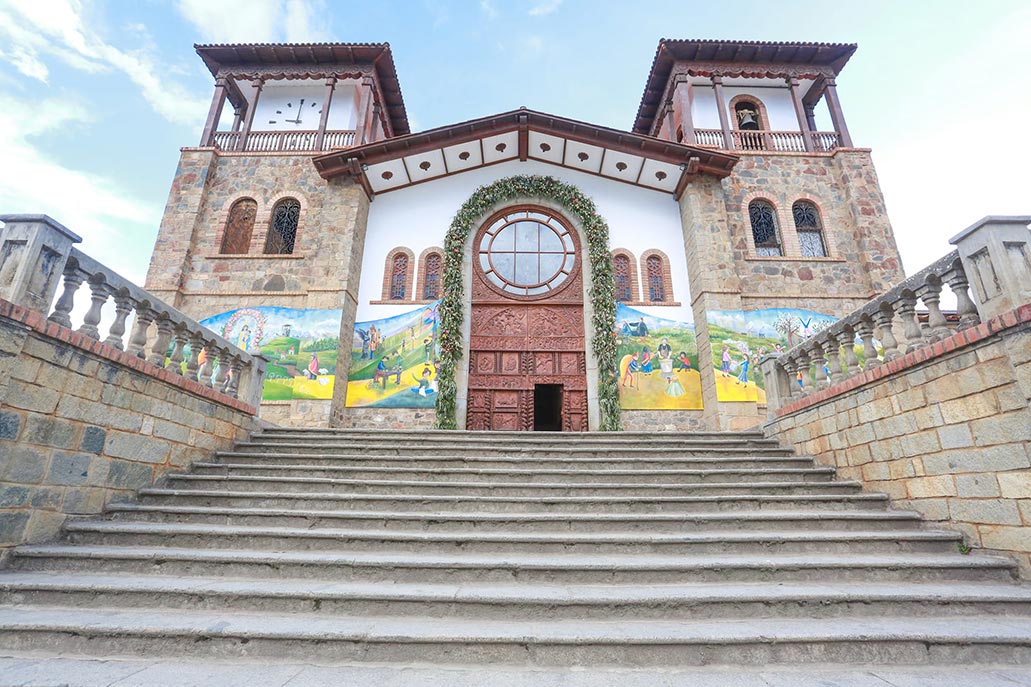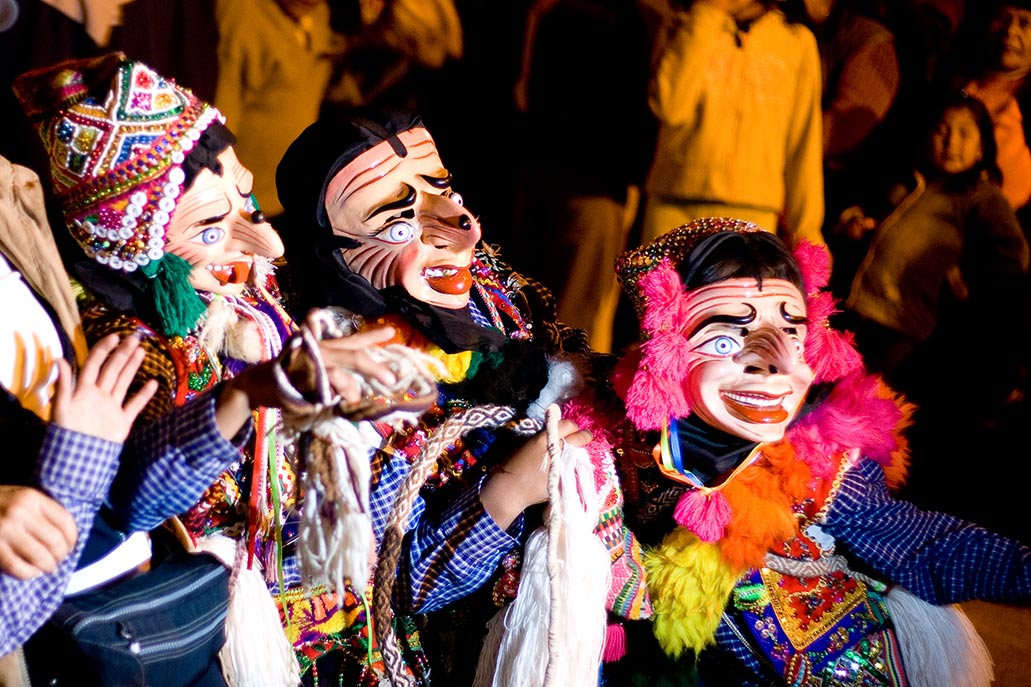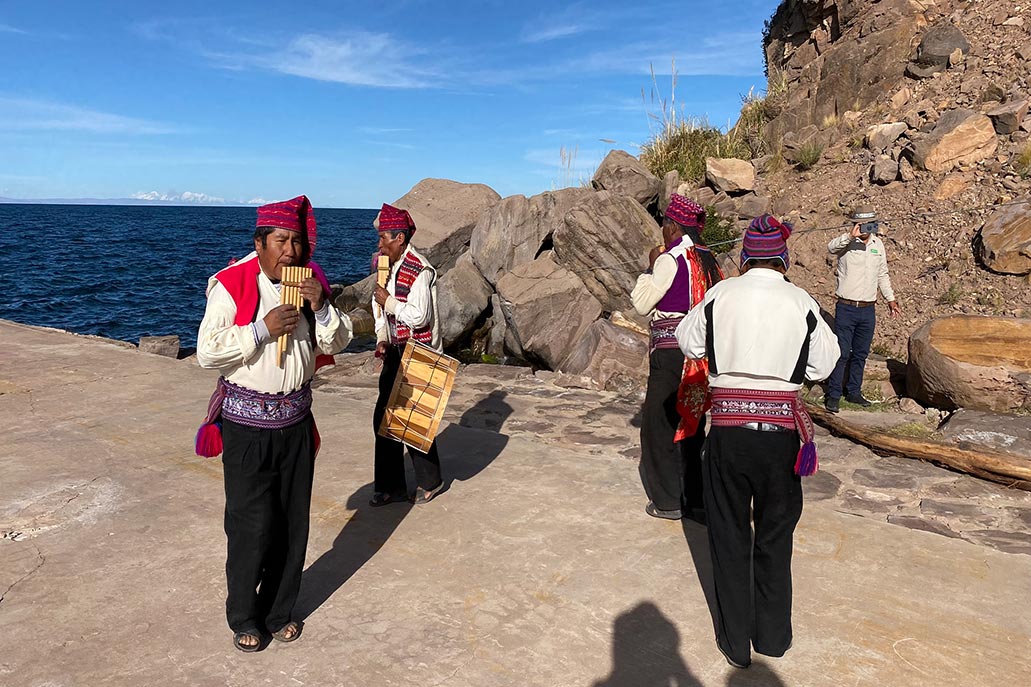The 8 best tourist towns in Peru
In 2023, five Peruvian towns were recognized among the best tourist towns in the world, in a contest promoted by the World Tourism Organization. These are: Chavín de Huántar in Áncash, Chacas also in Áncash, Paucartambo in Cusco, Pozuzo in Pasco and Taquile in Puno. However, in Peru there are more towns with a lot of tradition and culture that are worth visiting. Get to know the 8 best tourist towns to visit in Peru.
Content
Aguas Calientes or Machupicchu town – The closest town to Machu Picchu is called Aguas Calientes. It is located just 10 kilometers by road and is a mandatory step for tourists arriving or returning from Cusco. The town is one of the most special in Peru since it is completely dedicated to tourism. There are no taxis, you can get everywhere on foot. There are 2, 3, 4 and 5 star hotels. The town is surrounded by a mountainous landscape full of trees and close to the Vilcanota River. All this makes it one of the most special towns in Peru.
Ollantaytambo in Cusco
The town of Ollantaytambo in Cusco is recognized as a ‘living Inca city’ because it has streets and an urban design that maintains its Inca structure. It is located in the Sacred Valley of the Incas, 61 kilometers by road from the city of Cusco. It has an altitude of 2,792 meters above sea level. The town is famous for its archaeological site and because the main train station to Machu Picchu is located there.
In Ollantaytambo visitors can stroll through the Inca streets made of stone. Everywhere there are Inca and colonial buildings. Around its main square there are dozens of tourist businesses such as restaurants, cafes and excellent quality hotels. The authorities of Peru recognized Ollantaytambo as the first ‘town of charm’, thanks to its culture and tourist attractions.
- Where is it?: In the province of Urubamba, department of Cusco, in the Sacred Valley of the Incas.
- How to get there?: From the city of Cusco you can take public transportation on Pavitos Street. The trip takes 1 hour 45 minutes and costs 12 Peruvian soles.
El Carmen in Ica
El Carmen in Chincha, Ica region, is recognized as the ‘cradle of Afro-Peruvian folklore. This is due to its great history where in the 17th and 18th centuries African slaves worked on the San Regis and San José estates. As a result, until today the largest population of El Carmen is Afro-descendant. Centennial traditions such as zapateo, the Peruvian cajon, dances, delicious cuisine and festivities still prevail there.
The town of El Carmen is located 16 kilometers from the city of Chincha and 110 kilometers from the city of Ica. The town, small but charming, has tourist attractions such as its baroque-style church and its interior catacombs. One of the best times to visit it is during the Festival of the Virgen del Carmen on December 27, 28 and 29. Their flagship dish is carapulcra with dry soup.
- Where is it?: In the province of Chincha, in the department of Ica on the central coast of Peru.
- How to get there?: From the city of Lima with a trip of 204 kilometers by road to the city of Chincha. Then with a 16 kilometer trip by taxi or public transport.
Boras de San Andrés Native Community in Loreto
The immense Amazon jungle was home to very different indigenous ethnic groups whose languages, traditions and practices are hundreds and thousands of years old. One of the most famous Amazonian towns in Peru are the Boras de San Andrés in the department of Loreto. This community is original from upper Putumayo (current border with Colombia). In the difficult era of rubber exploitation (at the end of the 19th century) they emigrated to their current location.
The Boras community is located on the banks of the Momón River, 20 minutes by river from the city of Iquitos. Its name means ‘ear without hole’. They stand out for their dances, their Bora language, body painting and festivals such as the ‘Pijuayo festival’ or the ‘danza de la viga’. In these ceremonies they use masks to represent mythological beings. It is estimated that there are 1,700 Bora people in the Loreto region.
- Where is it?: On the banks of the Momón River (Amazon slope) in the department of Loreto in Peru.
- How to get there?: From the port of Bellavista in Nanay, in the city of Iquitos, you take a motor boat that takes you to the town of Boras in 20 minutes. The cost is 20 soles per visitor.
Chavin de Huantar in Ancash
The town of Chavín de Huántar is located in the district of the same name, in the province of Huari, department of Áncash. It is located at the foot of the famous Cordillera Blanca, at an altitude of 3,150 meters above sea level. It is famous for the Chavín de Huántar archaeological site with enigmatic temples and constructions of mud and stone. But also because of the culture and customs of its inhabitants such as their Quechua language, their clothing and festivities.
The residents of Chavín are known as ‘sons of the speared tiger’ as this would be the correct etymology of their name. In addition, for the figure of a huge stone spear (the Lanzón) with feline figures. One of its main festivities is in honor of Mama Callmi (July 14 to 16). Typical dances, delicious local cuisine and music shows are shown there.
- Where is it?: The district of Chavín de Huántar is located at the foot of the Cordillera Blanca, in the province of Huari, department of Áncash.
- How to get there?: Chavín de Huántar is located 105 kilometers by road from the city of Huaraz. You can get there with public transport or tourist transport included in tours.
Chacas in Ancash
The town of Chacas is located in the province of Asunción, in the department of Áncash. It is located 109 kilometers by road from Huaraz in the so-called Conchucos alley. The town (founded in 1572 during the colonial era) is famous for its wood carvings, which are visible in its main square, its main church, its balconies and even in local workshops where many of the residents work.
In addition to its traditions and crafts in Chacas, there are nearby natural tourist attractions such as the Patarcocha lagoon, the Punta Olímpica tunnel, the highest in the world at 4,736 meters above sea level, the Chacas archeology museum, its church and more. The residents preserve many traditions from colonial times. Its stained glass windows, baroque altarpieces and festivities such as Mama Ashu (every August 15) stand out.
- Where is it?: In the province of Asunción, department of Áncash. The trip by land from Huaraz is 109 kilometers.
- How to get there?: By public or collective transportation from the city of Huaraz. The trip takes between 3 to 4 hours and costs between 20 to 30 Peruvian soles.
Paucartambo in Cusco
The town of Paucartambo is recognized as the ‘folklore capital of Cusco’. This is due to its great festival in honor of the ‘Mamacha del Carmen’, celebrated every July 16, 17 and 18. There you can see dozens of typical dances where the masks and costumes of the dancers draw a lot of attention. In addition, the festival stands out for its music, gastronomy, traditions and general excitement.
Paucartambo is the capital of the province of the same name located in the department of Cusco. In addition to its festivity, it is famous for tourist attractions such as the Tres Cruces de Oro viewpoint, the petroglyphs of Kosñipata, the chullpas of Ninamarca and more. The town has a history marked by the passage of the Incas and the Spanish. As a result, an amazing cultural syncretism was created, which is reflected in its religious festival.
- ¿Where is it?: In the province of Paucartambo, department of Cusco, about 105 kilometers by road from the city of Cusco.
- How to get there?: From the city of Cusco by public transportation for a cost of approximately 20 soles (collective taxis at the entrance to San Jerónimo). The trip takes approximately 2 hours 30 minutes.
Pozuzo in Pasco
In the heart of the central jungle of Peru is Pozuzo, an Autro-German colony whose origin dates back to the mid-19th century. This magical town is located in the district of the same name, province of Oxapampa in the department of Pasco. In addition to the beautiful landscape of green mountains that surrounds it, this town is famous for keeping alive the traditions and culture of the immigrants from Austria and Germany who arrived in 1859 due to the poverty and conflicts that existed then in those countries.
Today Pozuzo is one of the most tourist towns in Peru. The history, dance and gastronomy of its inhabitants, many fourth, fifth or sixth generation descendants of European migrants, draws a lot of attention. In addition, it stands out for the Yanachaga Chemillén National Park, Oxapampa, the El Delfín waterfall, the Huancabamba canyon and the Schafferer museum. During your visit, you cannot miss trying its gastronomy, a mix of Peruvian and European culinary techniques.
- Where is it?: In the province of Oxapampa, department of Pasco, in the middle of the high jungle (at an altitude of 739 meters above sea level).
- How to get there?: From the city of Oxapampa on a 77 kilometer road trip. The trip can be made with public transportation, taxi or tourist transportation (tours) and takes approximately 2 hours.
Taquile in Puno
Taquile in Puno is known as ‘floating land of ancestral weavers’. This is because it is a floating island located in the middle of Lake Titicaca (at 3,950 meters above sea level). It is considered one of the fifteen most beautiful islands on the planet where nearly two thousand inhabitants live, in an area of 5.72 square kilometers. They preserve their traditions, language (Quechua), culture and crafts. On this island its main activity is agriculture and tourism.
The island of Taquile offers visitors beautiful landscapes, culture, crafts (they are experts in textile art), archaeological sites and more. Its traditions are inherited from the Inca culture, such as community work, its textile art recognized by UNESCO as ‘masterpieces of the Oral and Intangible Heritage of Humanity’. Currently this island receives approximately 50 thousand tourists a year. It is one of the most interesting and visited towns in Peru.
- Where is it?: In the district of Amantaní, province and department of Puno in the middle of Lake Titicaca (approximately 3,950 meters above sea level).
- How to get there?: From the city of Puno you take a boat between 8 am and 8.30 am. The price is 20 soles round trip. The trip takes 3 hours (35 kilometers).
By Machupicchu Terra – Last updated, November 24, 2023
